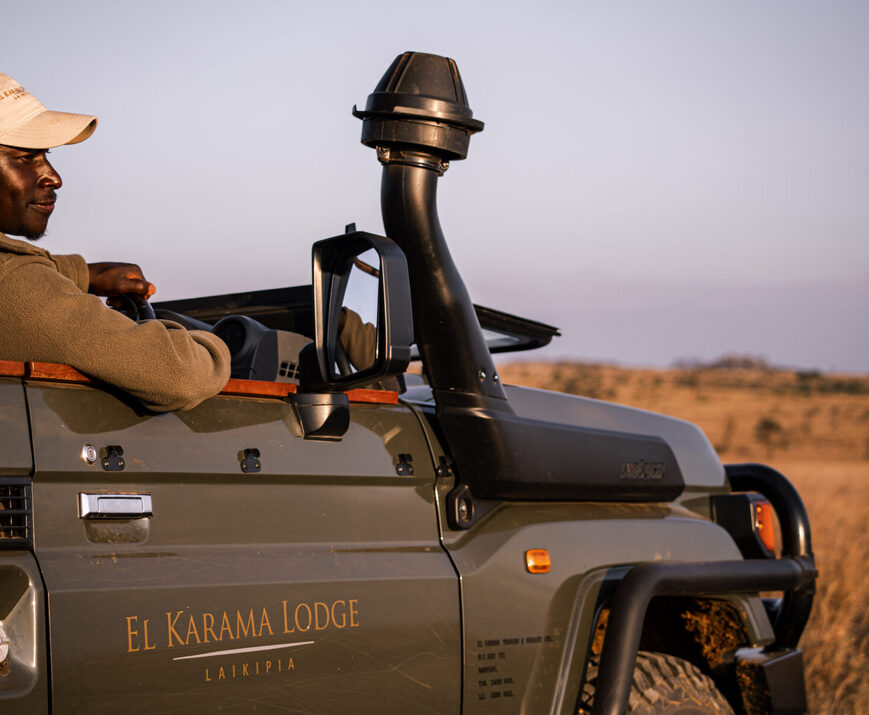
When the architects of my dream safari set out to craft an experience, they didn’t just chase opulence—they hunted for a story. A place where sustainability isn’t a footnote but the very pulse of existence. That’s how I found myself at El Karama Lodge, a sanctuary stitched into the golden tapestry of Laikipia, where the land whispers its tales through the rustle of acacias, the laughter of its people, and the quiet brilliance of thoughtful details.
Long before eco-tourism became a hashtag, there was a family and a wild, stubborn dream. The Grants didn’t just build a lodge—they rewilded a legacy. What began as a ranch in the 1960s unfurled into Kenya’s first private conservancy, a living blueprint for how humans and nature can dance without stepping on each other’s toes.
In an era of safari giants, El Karama is a defiant whisper. No corporate playbook here—just organic growth, measured in elephant calves born, in trees replanted, in Robinson, my guide, whose hands remember cattle before they learned to track lions. The team isn’t staff; they’re
, from Neambura’s dawn smiles to chefs turning garden harvests into edible sonnets.
Luxury here wears mud on its boots. My private house, Nilotica, was a symphony of repurposed river rock and fallen timber, where monkeys held court outside and hidden swings invited idle afternoons. Even the soap carried the scent of the land—botanical alchemy bottled by Kenyan hands.
But the real magic? Children digging into Bush School while parents steal spa moments. Horses nuzzling my palm at dawn. A monitor lizard becoming my silent poolside companion. This isn’t a curated spectacle—it’s life, unfiltered.
The kitchen writes love letters to the land. Hippos grunted approval as we devoured bush breakfasts by the river, where every ingredient had a face and a footprint—Lucy’s tomatoes, the shamba’s edible flowers, bread still warm from the oven. Sustainability here isn’t a trend; it’s Lucy buying land, sending kids to school, stitching futures.
Wire-wrapped Boscia trees stand like armored sentinels against hungry elephants. Schoolchildren plant riverbank saplings that’ll outlive us all. Flatpack leopard-proof bomas—ingenious and simple—are rewriting coexistence. This is conservation that rolls up its sleeves and gets dirt under its nails.
As I left, the lodge gifted me not trinkets, but weightless treasures: The memory of a lilac-breasted roller streaking like a living jewel across the sky. The way the team’s laughter tangled with campfire smoke. The certainty that some places don’t just host you—they
you.
El Karama isn’t a destination. It’s a living, breathing love letter to what safaris could—and should—be.

















